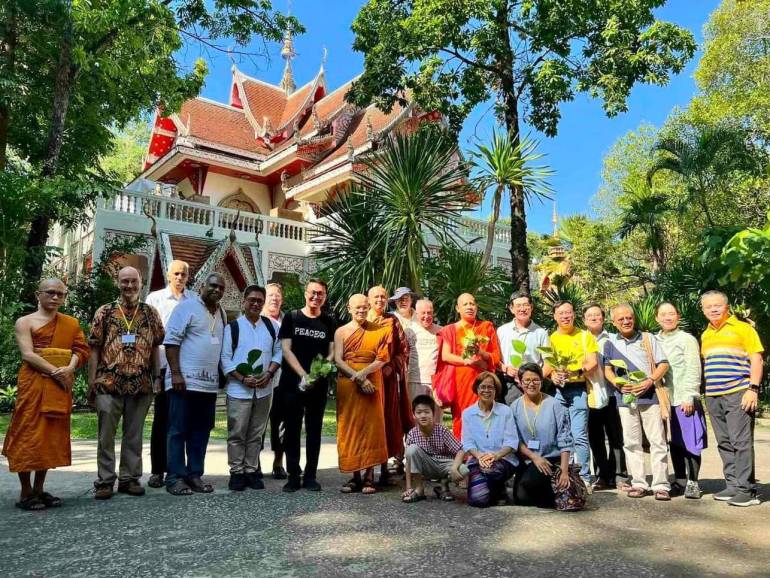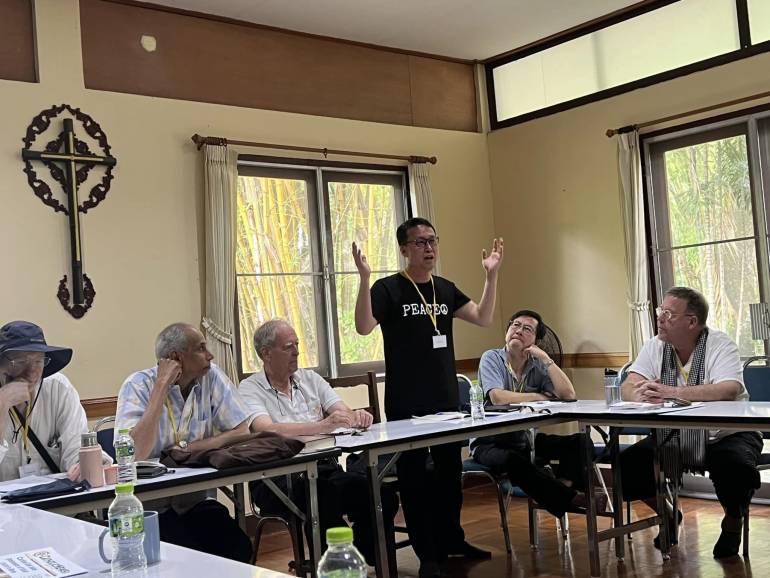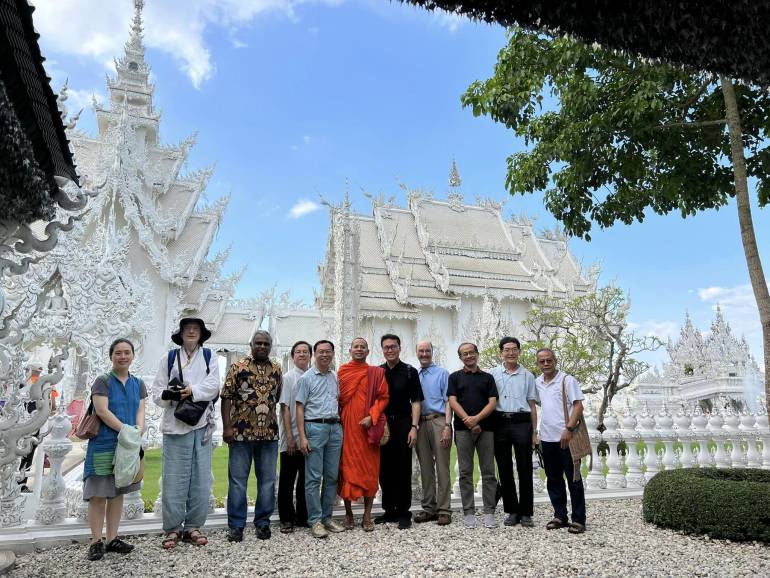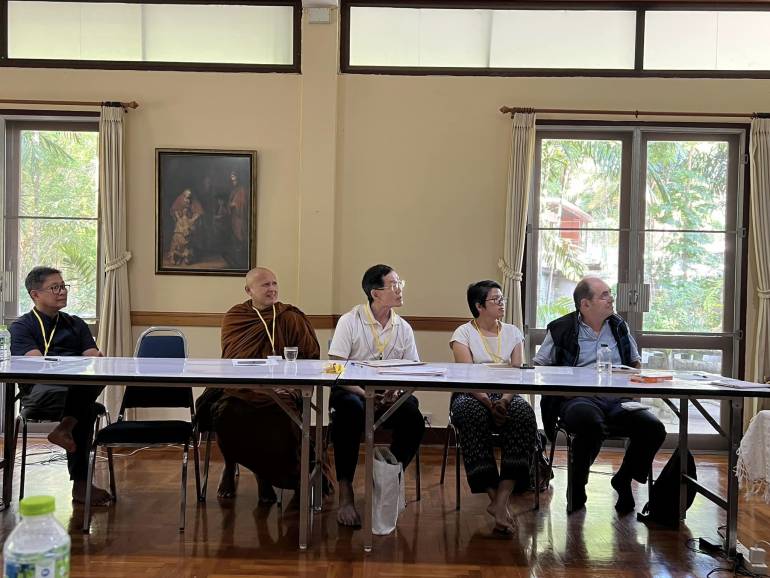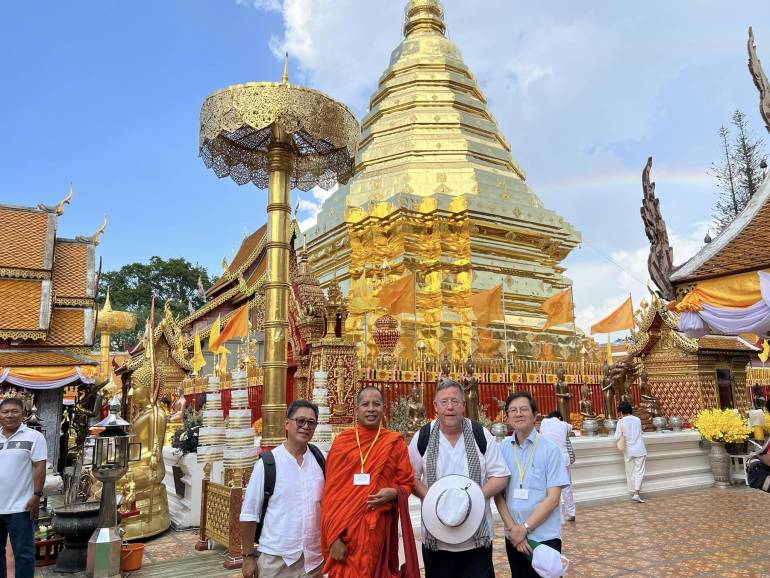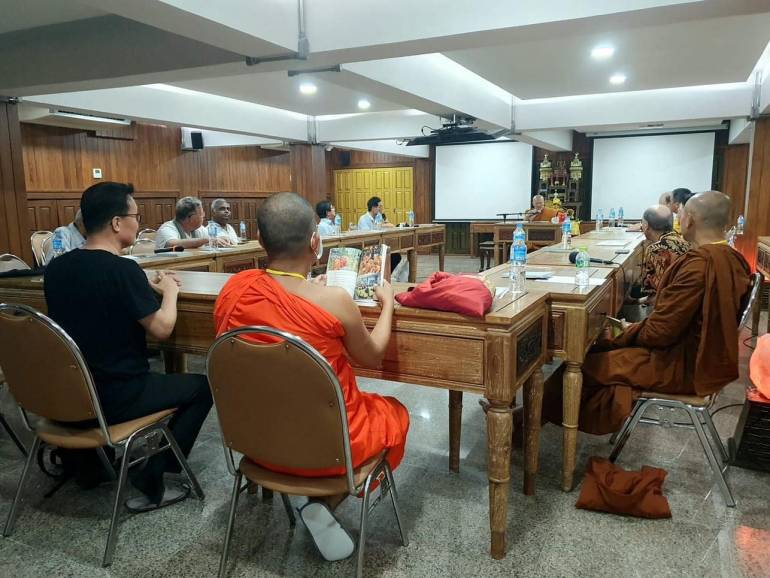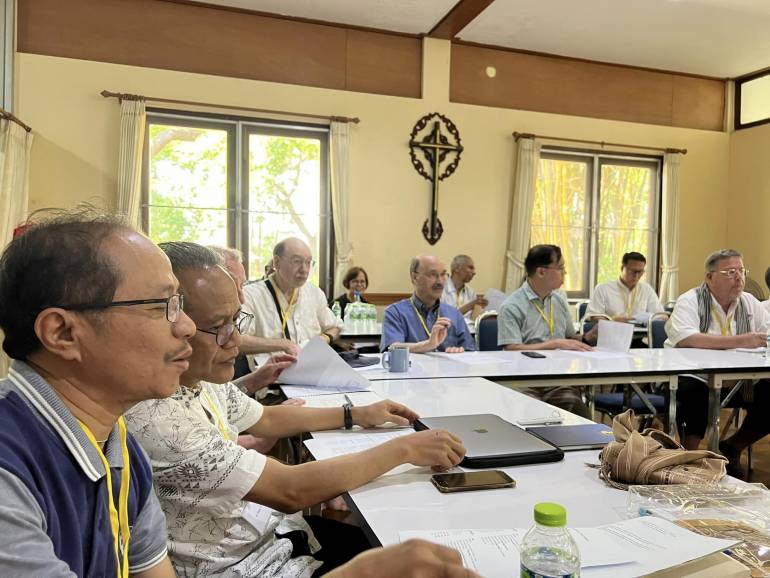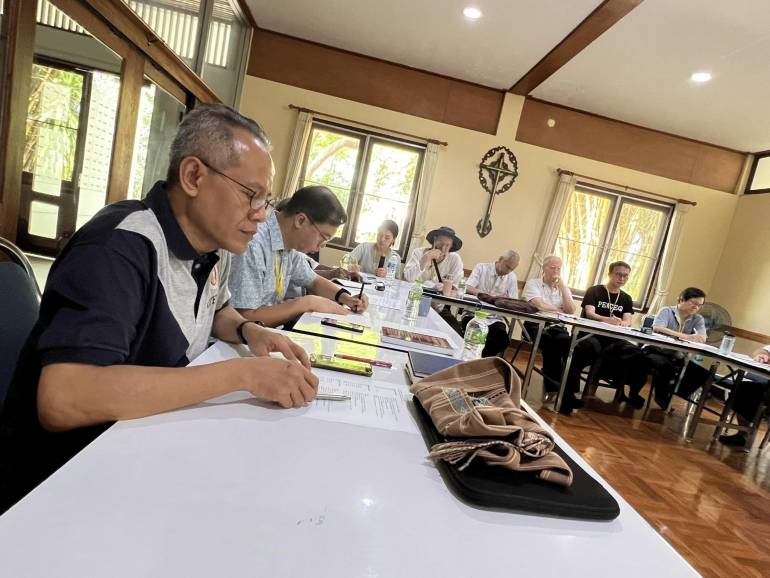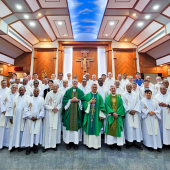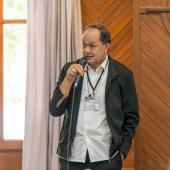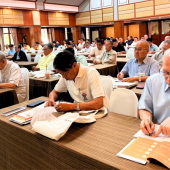Catholic priests, Buddhist monks reiterate their efforts to promote interreligious dialogue in Asia
Catholic priests and others who are engaged in interreligious dialogue in the Asia Pacific have stressed work on the power of mutual love in society.
They held a workshop to further peace and harmony in Chiang Mai Province, Thailand.
The June 1-3 meeting was held at the Seven Fountains Jesuit Retreat Center in Chiang Mai.
The focus was on interreligious dialogue on peace and harmony for society and the whole world, promoted by Catholic priests, Buddhists, lay people, and friends from various countries in the Asia Pacific region.
The Buddhist Studies and Dialogue Group first connected online during the Covid-19 pandemic and then met in person in Chiang Mai.
The group's first gathering occurred in Chiang Mai in 2010; thus, returning to Chiang Mai for their face-to-face event after the pandemic had special significance.
Up to 14 former attendees attended the conference, including the Marist Father Hermes Sabud and the Maryknoll Father Lo Dam.
The president of the Preah Sihanouk Raja Buddhist University, Battambang Branch, Ven Vy Sovechea, a Buddhist monk from Cambodia, was also present.
Teresa Kwon Yohn-Dam, a graduate lay Korean student, also joined the group.
The new participants included Tom-team Preeyanoot, a Buddhist, George Pierluigi Vencato, a Catholic, and Dina Yutitham, a member of Focolare in Chiang Mai.
An Italian Catholic woman, Chiara Lubich established the international Focolare movement in 1943 to further the principles of harmony and all-encompassing brotherhood.
The participants of the interreligious group visited a meditation center. Ven Pittaya, a well-known Thai monk, was able to take part in the meeting.
Gerald Kong of Singapore and Yuthachai NgernLa of Chiang Mai, lay coordinators of interreligious dialogue, added to the gathering's value by sharing insightful information regarding the initiatives in their Catholic dioceses.
Jesuit participants from Asia-Pacific and South Asia reaffirmed the value of the interreligious group for greater sharing and companionship in a ministry that is frequently "lonely" and open to many misunderstandings in their local communities.
Since 2010, the fellowship has been a significant driving force for the yearly gathering, in addition to what is taught in formal presentations and dialogue activities at Buddhist temples and other institutions of various religions.
This year's talks on the Jesuits in Thailand were given by Jesuit Father Miguel Garazaibal, Dr. Boonchuay Doojai, and Father Daniele Mazza PIME, an Italian missionary in Thailand gave those on Buddhism in Thailand.
Indonesian missionary Jesuit Father Petrus Puspobinatmo updated the situation in Myanmar.
Jesuit Father Leo Lefebure, Professor of Theology at Georgetown University and expert on religious pluralism and interreligious dialogue addressed the group.
He discussed the issues and concerns regarding with Buddhist-Christian dialogue in the United States to be highly instructive.
The annual workshop continues to feature opportunities for conversation with nearby Buddhists.
The Focolare members organized a trip to Wat Ram Poeng, a temple known for hosting visitors from other countries to practice vipassana meditation for ages 10 to 26 days.
Ajahn Supan, the Buddhist monk, personally greeted the participants and responded to their inquiries using the translation services of Jesuit Father Paolo Kriangyot.
The group also visited the well-known Doi Suthep mountain temple, which has a relic of Buddha's hair.
Since the trip coincided with Vesak (the Buddha's birthday), everyone there found it emotional to witness the hundreds of pilgrims ascending the mountain to attend the evening services.
After the official meeting on June 3, most of the group continued to explore more Buddhist temples and fly to Chiang Rai to see the Jesuit-run Xavier Learning Center.
Tom-Taem, a Thai Buddhist member of Focolare, gave one of the workshop's most memorable comments.
She explained how studying Jesus' agony on the cross helped her better grasp Buddhism's Four Noble Truths. The strength of love is what stands out, not the variations in ideas.
She claimed that dialogue enables people of all faiths to coexist in love, and this idea inspired this year's event. - Santosh Digal with Jesuit Conference of Asia Pacific input
Radio Veritas Asia (RVA), a media platform of the Catholic Church, aims to share Christ. RVA started in 1969 as a continental Catholic radio station to serve Asian countries in their respective local language, thus earning the tag “the Voice of Asian Christianity.” Responding to the emerging context, RVA embraced media platforms to connect with the global Asian audience via its 21 language websites and various social media platforms.





